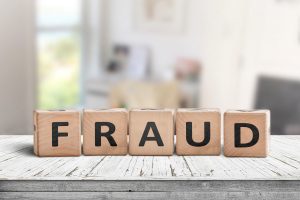The travel industry, while vibrant and ever-growing, is no stranger to fraud. As technology evolves and the demand for seamless travel experiences increases, so too do the tactics used by fraudsters to exploit both travel agents and clients. Whether you’re a seasoned agent or a frequent traveler, understanding the methods of travel fraud is the first step to protecting yourself and your business.
Common Types of Travel Industry Fraud
1. Fake Travel Agencies
Fraudsters often set up professional-looking websites or social media profiles that mimic legitimate travel agencies. They offer unrealistically low prices or exclusive deals, collect payment from unsuspecting clients and disappear. These scams often spike around peak travel seasons.
Target: Clients
Warning Sign: No verifiable business license, vague contact info, no traceable reviews.
2. Phishing & Spoofing Attacks
Travel agents are often targeted via phishing emails pretending to be from suppliers, airlines or clients. These messages usually request login credentials, payment processing or updated banking details.
Target: Travel Agents
Warning Sign: Unexpected payment requests, urgent or threatening tone, slight alterations in email addresses.
3. Fake Booking Confirmations
Fraudsters may send clients fake airline or hotel confirmations, often with legitimate-looking logos and PNRs (Passenger Name Records) that never actually exist in the system.
Target: Clients
Warning Sign: Lack of ability to verify the reservation directly with the airline or hotel.
4. Credit Card Fraud
Stolen or fake credit cards are used to book travel services. Later, when the real cardholder disputes the charges, travel agents or platforms may bear the loss of funds.
Target: Travel Agents
Warning Sign: Last-minute bookings, mismatch in billing and traveler’s info, high-ticket international flights.
5. Chargeback Scams
Fraudsters pose as legitimate customers and book expensive travel, only to dispute the charge after traveling, claiming they never authorized it.
Target: Travel Agents
Warning Sign: Excessive questions about payment policies, reluctance to sign service agreements.
6. B2B Supplier Fraud
Fake DMCs (Destination Management Companies), wholesalers or tour operators offer inventory or services they don’t actually control. Travel agents transfer funds and never receive services.
Target: Travel Agents
Warning Sign: Inability to verify supplier references or licensing, unusual payment requests (e.g., Western Union, crypto).
How to Protect Yourself
For Travel Agents:
- Verify all third-party vendors: Cross-check licensing, reviews and physical addresses.
- Use secure payment gateways: Avoid manual card input when possible.
- Educate your team: Conduct regular fraud awareness training.
- Implement fraud detection tools: Some GDS and booking platforms offer built-in alerts.
For Clients:
- Book through reputable agents or sites: Look for accreditation like IATA or ASTA.
- Use credit cards, not debit: Credit cards offer stronger fraud protection.
- Double-check reservations: Call the airline or hotel directly to confirm bookings.
- Watch for red flags: Pressure to pay immediately, “too good to be true” deals, or inconsistent communication.
Conclusion
Travel fraud doesn’t just impact individual trips – it erodes trust in an industry built on experience and reliability. Whether you’re an agent managing bookings or a traveler planning your next getaway, staying vigilant can help you sidestep the costly consequences of fraud. The more we understand the methods behind these scams, the better equipped we are to fight back.

